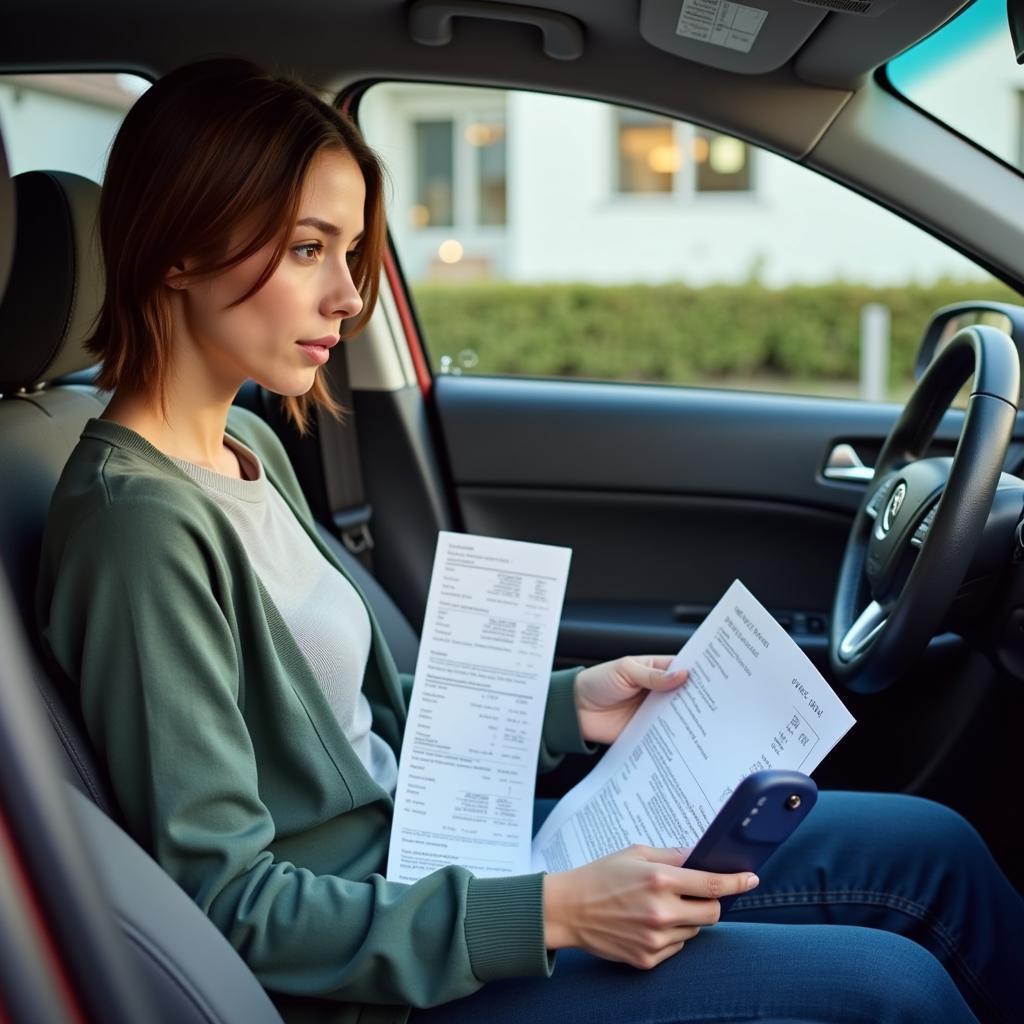Are Gas and Tolls Tax Deductible for Car Services?
Owning a car service business comes with its own set of financial complexities, especially when it comes to understanding tax deductions. Many car service owners wonder, “Are gas and tolls tax deductible for car services?”. The answer, like many things related to taxes, is: it depends. Let’s break down the specifics to help you navigate this often-confusing aspect of your business finances.
Deductible Business Expenses: The Key Factor
The IRS allows businesses to deduct ordinary and necessary expenses directly related to their operations. This means you can potentially deduct gas and tolls if you can prove they were essential for generating income for your car service business.
For example, gas used to transport a client from their pick-up location to their destination is a justifiable business expense. Similarly, tolls incurred while driving clients fall under this category. However, driving to and from your home to your car service business location doesn’t qualify as it’s considered a personal commute.
 Car service tax deductions
Car service tax deductions
Tracking is Crucial: Methods for Accurate Record Keeping
To successfully claim gas and toll deductions, meticulous record-keeping is non-negotiable. Here are two common methods:
- Logbook: This involves diligently recording every business mile driven, including the date, time, starting and ending mileage, purpose of the trip, and client name (if applicable).
- Mileage Tracking Apps: Several apps can automatically track your business mileage, simplifying the process.
Whichever method you choose, ensure you maintain accurate records throughout the year. This will make tax time less stressful and provide evidence to support your deductions if you’re ever audited.
The Standard Mileage Rate vs. Actual Expenses: Making the Right Choice
You have two options for deducting vehicle-related expenses:
- Standard Mileage Rate: This method allows you to deduct a fixed rate per business mile driven. The IRS sets this rate annually. This method simplifies calculations but might not be the most beneficial if your vehicle expenses are high.
- Actual Expenses: This involves deducting the actual costs of operating your vehicle for business, including gas, tolls, repairs, insurance, and depreciation. This method might yield a larger deduction, especially if you have high vehicle expenses, but requires meticulous record-keeping.
Consult with a tax professional to determine which method best suits your car service business’s financial situation.
Maximizing Your Deductions: Tips for Car Service Businesses
Here are some additional tips to optimize your tax deductions:
- Separate Business and Personal Expenses: Maintain separate bank accounts and credit cards for business and personal use. This makes tracking business expenses much easier.
- Keep All Receipts: Retain all receipts related to your car service business, including gas, tolls, repairs, and maintenance.
- Stay Updated: Tax laws are subject to change. Stay informed about any updates or revisions to ensure you’re maximizing your deductions legally.
 Car service owner discussing taxes with an accountant
Car service owner discussing taxes with an accountant
“Understanding the nuances of tax deductions, particularly for gas and tolls, can save car service businesses significant money,” says Sarah Miller, a certified public accountant specializing in small businesses. “Failing to maintain accurate records is a common mistake. Meticulous record-keeping is the cornerstone of maximizing deductions and avoiding potential issues with the IRS.”
Conclusion
While deducting gas and tolls for your car service business is possible, it requires a clear understanding of IRS guidelines and meticulous record-keeping. By maintaining detailed logs or utilizing mileage tracking apps, separating business and personal expenses, and staying informed about tax law updates, you can confidently navigate these deductions and potentially reduce your tax liability. Remember, consulting with a qualified tax professional is always recommended to ensure you’re maximizing your deductions while remaining compliant with all applicable regulations.
FAQs
1. Can I deduct parking fees and car washes for my car service business?
Yes, parking fees and car washes directly related to your business operations are generally deductible.
2. What if I use my car for both personal and business use?
You can only deduct expenses for the portion of use that’s directly related to your business. Keep detailed records to support your deductions.
3. Do I need to keep my receipts if I’m using the standard mileage rate?
While you don’t need receipts for gas and tolls with the standard mileage rate, it’s still wise to keep records of your mileage and other potential deductions like parking and tolls.
4. Can I switch between the standard mileage rate and actual expenses each year?
Yes, you can choose the method that benefits you most each year. However, there are specific rules about switching between methods, so consult with a tax professional.
5. Where can I find the most up-to-date information on car service tax deductions?
The IRS website (IRS.gov) is the best source for the latest information and publications related to business tax deductions.
Need More Help?
Navigating the complexities of car service tax deductions can feel overwhelming. For personalized guidance and support, reach out to our team of experts. We’re here to help you maximize your deductions and achieve your financial goals. Contact us via WhatsApp: +1(641)206-8880 or Email: [email protected]. Our customer support team is available 24/7 to assist you.
For more information on car service tax deductions, you can also read our comprehensive guide on are car services tax deductible. This resource provides in-depth insights and practical tips to help you navigate this important aspect of your business finances.

